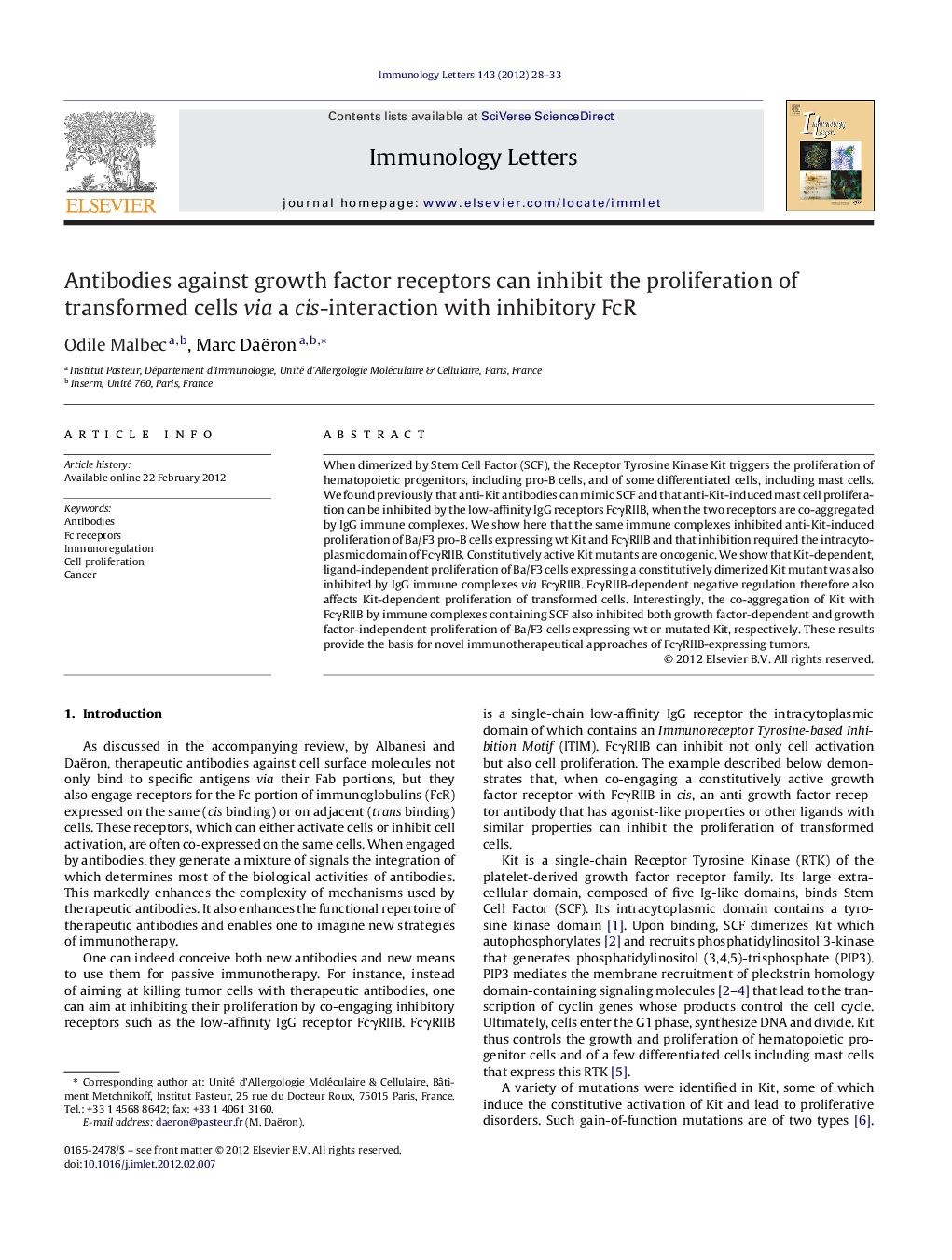| Article ID | Journal | Published Year | Pages | File Type |
|---|---|---|---|---|
| 3355643 | Immunology Letters | 2012 | 6 Pages |
When dimerized by Stem Cell Factor (SCF), the Receptor Tyrosine Kinase Kit triggers the proliferation of hematopoietic progenitors, including pro-B cells, and of some differentiated cells, including mast cells. We found previously that anti-Kit antibodies can mimic SCF and that anti-Kit-induced mast cell proliferation can be inhibited by the low-affinity IgG receptors FcγRIIB, when the two receptors are co-aggregated by IgG immune complexes. We show here that the same immune complexes inhibited anti-Kit-induced proliferation of Ba/F3 pro-B cells expressing wt Kit and FcγRIIB and that inhibition required the intracytoplasmic domain of FcγRIIB. Constitutively active Kit mutants are oncogenic. We show that Kit-dependent, ligand-independent proliferation of Ba/F3 cells expressing a constitutively dimerized Kit mutant was also inhibited by IgG immune complexes via FcγRIIB. FcγRIIB-dependent negative regulation therefore also affects Kit-dependent proliferation of transformed cells. Interestingly, the co-aggregation of Kit with FcγRIIB by immune complexes containing SCF also inhibited both growth factor-dependent and growth factor-independent proliferation of Ba/F3 cells expressing wt or mutated Kit, respectively. These results provide the basis for novel immunotherapeutical approaches of FcγRIIB-expressing tumors.
► This is the first demonstration that FcγRIIB can inhibit the proliferation of transformed cells. ► FcγRIIB can inhibit ligand-induced cell activation and proliferation. ► FcγRIIB can inhibit the autonomous proliferation of cells that express an oncogenic RTK. ► This work provides the basis for novel treatments of FcγRIIB-expressing tumors.
